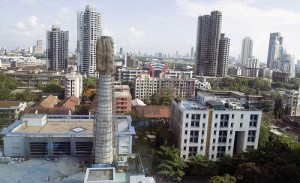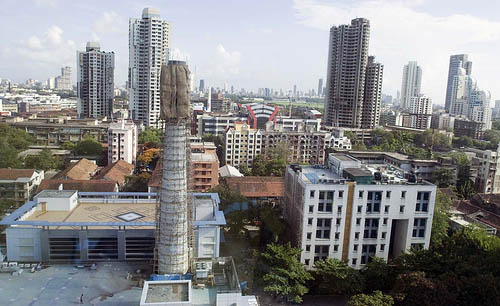 The new Development Control Rules applying restrictions on redevelopment projects in Mumbai will defeat the very purpose of the redevelopment scheme and lead to immense social injustice, the Maharashtra Chamber of Housing Industry, has said.
The new Development Control Rules applying restrictions on redevelopment projects in Mumbai will defeat the very purpose of the redevelopment scheme and lead to immense social injustice, the Maharashtra Chamber of Housing Industry, has said.
Commenting on the proposal to include redevelopment projects under the plans to levy 100% premium on FSI on hitherto uncovered areas, MCHI President Paras Gundecha said that the move is impractical.
Redevelopment has been envisaged to rejuvenate Mumbai which is facing tremendous land shortage. Tenants and occupants of the old dilapidated buildings are to be given flats or shops free of cost when these structures are demolished and new ones are constructed with additional FSI which developers can sell in open market.
Following the various concessions and relaxations given by the authorities to developers, the latter have committed amenities to tenants. Developers will not be able to meet their commitments if any changes are made in the FSI concessions and tenants might even revoke their agreements, Gundecha pointed out.
The plan to levy 100 premium on some areas like flower bed, parking, balconies etc appeared to have been made under the wrong premise that the developers were indulging in commercial exploitation. “This question does not arise since the flats are given free of cost to tenants with the developers utilizing the concessions and relaxations under the rehabilitation package,” he said.
He, therefore, said that all common areas such as Balcony area, Flower bed area, Lift, stair case, common passage, duct etc. should be excluded from the computation of FSI calculation without any restriction in terms of percent of floor area as permitted in the un-amended regulation for the rehab as well as for the composite buildings.
Moreover, the rehab F.S.I. is computed by loading 20% on the carpet area provided to the tenants and the incentive F.S.I. is also computed on such computed rehab FSI.
Another point to be noted is that all redevelopment projects will become unviable If the proposal to charge 100% premium and the new DCR are implemented. Hence, the rehab projects cannot be built or realized as the tenants will withdraw their consent and the agreements executed with developers will become null and void.
This will also lead to discrimination between the tenants who have been rehabilitated and given the benefit of the existing rules and those, whose plans have been approved, work commenced but awaiting completion.
This will also cause social injustice, defeating the government’s rehabilitation policy. We, therefore, appeal for a serious rethinking on the new DC Rules and all 100% FSI premium plan.
As regards to free sale tower, Gundecha said, since the incentive FSI is only 50% of rehab FSI, only 10% premium should be charged on the free sale building excluding balcony, but including lift stair case, passages.
“We suggest that the height of the commercial space should be allowed up to 4.2 meters instead of 3.6 meters proposed in the draft amendment since the all the existing shop keepers are to be rehabilitated with the height as permitted under the un-amended DCR as per the commitment of developers,” Gundecha said.
The height of refuge floor may be restricted 2.4 meters below the beam level instead of cantilever refuge floors at mid landing level open to sky, he said.
As regards to the minimum/ marginal front and side open space that is required to be provided, if the amended DCR is implement, no development can be done in areas that are less than 2000 Sq.mtrs. Thus, the plots of size of less than 2000 Sq.Mtrs will always remain unbuildable and the tenants will never be rehabilitated in new buildings. This defeats the very purpose of redevelopment that has been designed to help rehabilitate people living in dangerous and dilapidated buildings, Gundecha added.





